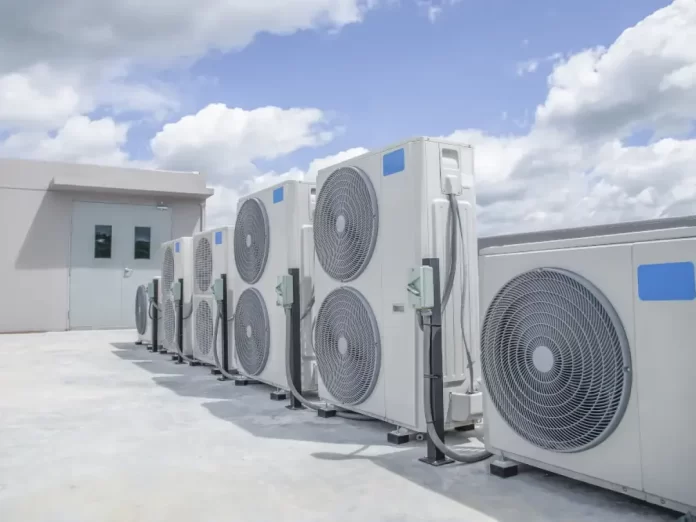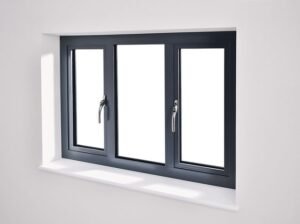Maintaining excellent indoor air quality (IAQ) is essential for a healthy and comfortable living environment, especially in a place like Dubai, where outdoor air quality can be challenging due to dust, pollution, and high temperatures. Good IAQ contributes to better respiratory health, improved comfort, and overall well-being. In this article, we’ll explore practical tips and solutions for enhancing indoor air quality in your Dubai villa.
1. Invest in a High-Quality Air Purifier

Air purifiers can significantly improve indoor air quality by removing airborne contaminants such as dust, pollen, and pollutants.
- HEPA Filters: Look for air purifiers with HEPA (High-Efficiency Particulate Air) filters, which are effective at trapping tiny particles and allergens.
- Activated Carbon Filters: These filters can help remove odors and volatile organic compounds (VOCs) from the air.
Example: A good air purifier with a HEPA filter can remove up to 99.97% of airborne particles as small as 0.3 microns, making a noticeable difference in air quality.
2. Ensure Proper Ventilation
Proper ventilation helps to exchange indoor air with fresh outdoor air, reducing the buildup of indoor pollutants.
- Use Exhaust Fans: Install exhaust fans in high-humidity areas like kitchens and bathrooms to expel excess moisture and odors.
- Open Windows: Regularly open windows to allow fresh air to circulate, especially when outdoor air quality is acceptable.
Tip: Proper ventilation helps to reduce indoor humidity and prevent mold growth, which can contribute to poor air quality.
3. Regularly Clean and Maintain HVAC Systems
HVAC systems play a crucial role in regulating indoor air quality by filtering and circulating air throughout your villa.
- Replace Filters: Change HVAC filters regularly to ensure they are effectively capturing dust, allergens, and other pollutants.
- Professional Maintenance: Schedule regular maintenance for your HVAC system to ensure it operates efficiently and effectively.
Example: Regularly replacing HVAC filters can improve air quality and extend the life of your system by preventing dust and debris buildup.
4. Control Indoor Humidity Levels
High humidity levels can lead to mold growth and other indoor air quality issues. Maintaining optimal humidity levels is crucial for a healthy indoor environment.
- Use Dehumidifiers: Dehumidifiers help to reduce indoor moisture, preventing mold growth and improving air quality.
- Monitor Humidity: Use a hygrometer to monitor indoor humidity levels, aiming for a range of 30-50%.
Tip: Keeping indoor humidity levels in check can reduce the risk of mold and mildew, which can negatively impact air quality.
5. Choose Low-VOC and Non-Toxic Products
Volatile Organic Compounds (VOCs) are chemicals found in many household products that can negatively impact air quality.
- Low-VOC Paints: Use low-VOC or VOC-free paints and finishes to minimize the release of harmful chemicals into the air.
- Non-Toxic Cleaning Products: Opt for non-toxic and eco-friendly cleaning products that do not release harmful fumes.
Example: Using low-VOC paints and non-toxic cleaning products can reduce indoor air pollution and create a healthier living environment.
6. Incorporate Indoor Plants
Indoor plants can naturally improve air quality by absorbing carbon dioxide and releasing oxygen.
- Air-Purifying Plants: Choose plants known for their air-purifying qualities, such as snake plants, peace lilies, and spider plants.
- Proper Care: Ensure plants are well-cared for, as overwatered or dead plants can contribute to poor air quality.
Tip: Incorporating a few air-purifying plants into your indoor space can enhance air quality and add a touch of greenery to your villa.
7. Keep Your Home Clean and Dust-Free

Regular cleaning is essential for maintaining good indoor air quality by reducing dust and allergens.
- Vacuum Regularly: Use a vacuum cleaner with a HEPA filter to effectively capture dust and allergens from carpets and upholstery.
- Dust Surfaces: Frequently dust surfaces, including shelves, furniture, and electronic devices, to prevent dust buildup.
Example: Regular cleaning and dusting can help maintain a clean indoor environment and reduce the presence of allergens and pollutants.
8. Avoid Smoking Indoors
Smoking indoors can significantly degrade indoor air quality and pose serious health risks to residents.
- Designated Smoking Areas: If smoking is necessary, designate an outdoor area for smoking to prevent smoke from entering the indoor environment.
- Smoke Detectors: Ensure that smoke detectors are installed and functioning properly to provide early warnings of smoke and fire.
Tip: Avoiding indoor smoking can prevent harmful chemicals from contaminating the air and maintain a healthier living space.
Conclusion
Enhancing indoor air quality in your Dubai villa involves a combination of strategies aimed at reducing pollutants, managing humidity, and improving ventilation. By investing in air purifiers, maintaining HVAC systems, controlling humidity levels, and using non-toxic products, you can create a healthier and more comfortable living environment. Incorporating these tips into your home maintenance routine will not only improve air quality but also contribute to the overall well-being of your family.
For expert assistance in improving indoor air quality and maintaining your villa, contact Austenite Technical Services at +971 56 378 7002. Our team is dedicated to helping you create a healthier and more comfortable living space.
FAQs:
- What are the benefits of using a HEPA air purifier? HEPA air purifiers effectively capture airborne particles and allergens, improving indoor air quality and reducing respiratory issues.
- How often should I replace HVAC filters? HVAC filters should be replaced every 1-3 months, depending on usage and the type of filter, to maintain optimal air quality.
- What indoor humidity level is considered ideal? The ideal indoor humidity level is between 30-50%, which helps prevent mold growth and maintains a comfortable environment.
- Why should I use low-VOC products in my home? Low-VOC products release fewer harmful chemicals into the air, reducing indoor air pollution and contributing to better air quality.
- Which indoor plants are best for improving air quality? Air-purifying plants like snake plants, peace lilies, and spider plants are effective at improving indoor air quality.
- What are the signs of poor indoor air quality? Signs of poor indoor air quality include persistent odors, excessive dust, respiratory issues, and mold growth.
- How can I reduce dust in my home? Regular vacuuming with a HEPA filter, frequent dusting, and using air purifiers can help reduce dust and allergens.
- Why is it important to avoid smoking indoors? Smoking indoors can significantly degrade air quality, introduce harmful chemicals, and pose health risks to residents.







